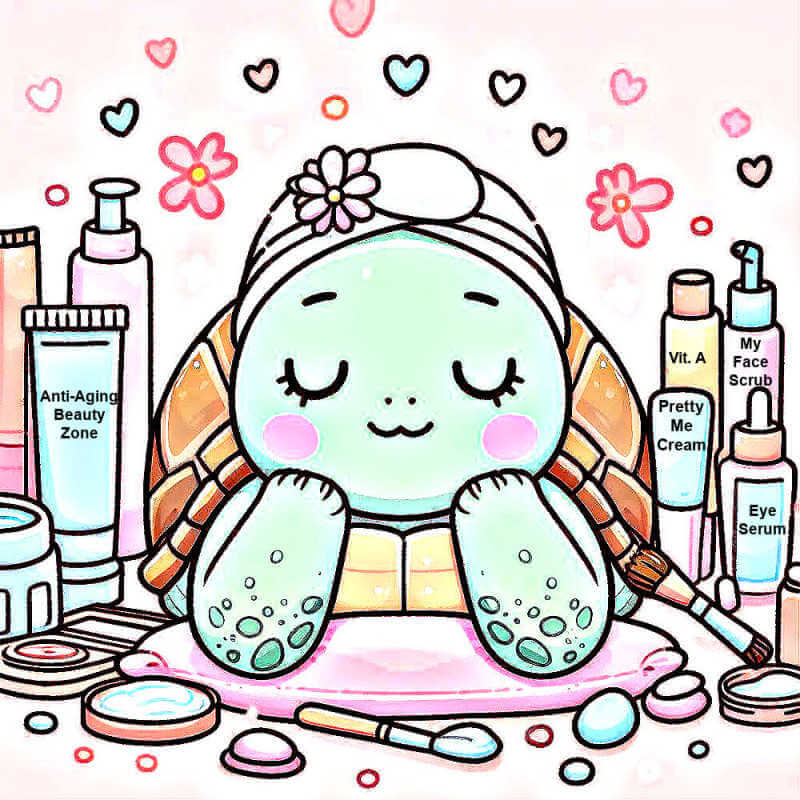- Home
- Sunscreen & Protection
Does Sunscreen Prevent Aging and Wrinkles? (Yes, If You Use It Right)
You probably already know sunscreen helps prevent sunburn. But did you know it’s also one of the most effective tools for preventing wrinkles, sagging, and dark spots over time?
Fact: Sunscreen is more powerful than any serum, cream, or anti-aging treatment when it comes to long-term results. It’s your first line of defense.
Here’s what we’ll cover:
- Which type protects best against aging
- Why the PA rating matters
- How to layer with moisturizer or makeup
- How much to use and when
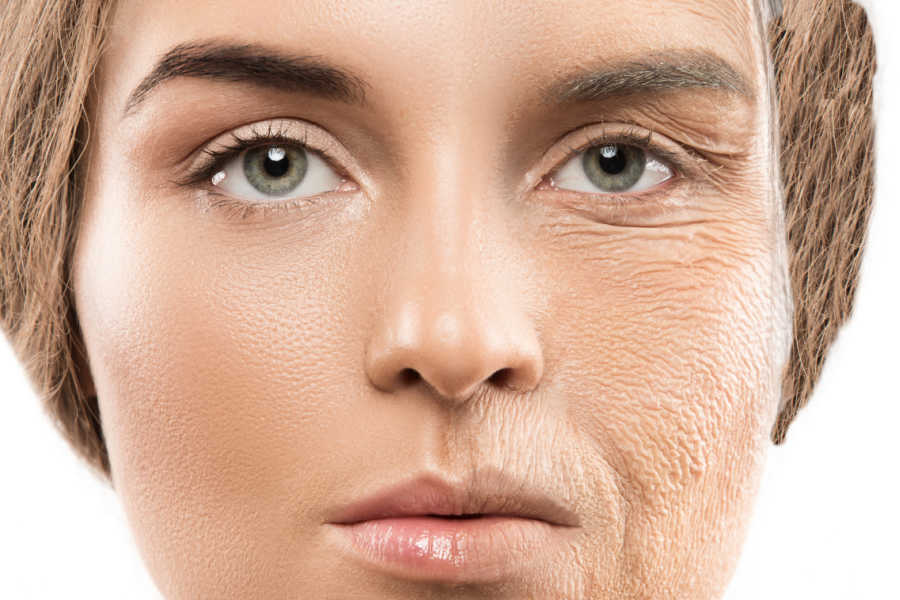
Which sunscreen protects best against wrinkles?
UVA rays are the biggest cause of visible skin aging. They penetrate deeper than UVB rays and gradually break down collagen and elastin—leading to fine lines, sagging, and sun spots.
While broad-spectrum sunscreens protect against both UVA and UVB, not all formulas are equally effective at blocking UVA rays (the ones responsible for aging).
Why mineral sunscreens offer stronger UVA protection
According to studies from the MD Anderson Cancer Center and the Center for Research on Ingredient Safety mineral sunscreens—especially those with high zinc oxide concentrations—offer more consistent, stable UVA protection than chemical formulas.
While ingredients in chemical sunscreens, such as avobenzone, do provide UVA protection, they can break down more quickly when exposed to sunlight—reducing their long-term effectiveness.
Need help picking one? Check out my favorite chemical-free sunscreens for your face. They’re reef-safe, non-irritating, and layer beautifully under makeup.
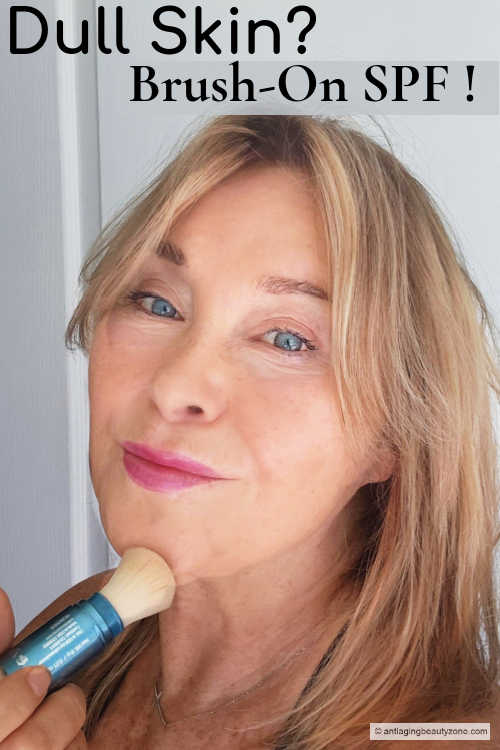
My new SPF obsession: This brush-on mineral sunscreen is a total game-changer. It’s *mess-free*, doesn’t disturb makeup, and makes reapplying SPF throughout the day actually enjoyable. I keep one in my bag and swipe it on before dog walks, errands—anytime.
See why I love this one and check out the full list of my favorite chemical-free sunscreens ...
How to use sunscreen for anti-aging results
Here is the best protection combo:
- Use a mineral sunscreen (look for zinc oxide)
- Choose broad-spectrum coverage
- Look for PA+++ or PA++++ rating (more on that below)
Quick tip: Mineral sunscreens work immediately and layer well over moisturizers or serums
What is a PA rating—and do you need it?

You already know SPF tells you how well a product protects against UVB rays—the ones that cause sunburn. But SPF doesn’t tell the whole story.
That’s where the PA rating comes in. It measures UVA protection—the deeper-penetrating rays responsible for:
- Fine lines and wrinkles
- Skin sagging
- Collagen loss and decreased firmness
Even on cloudy days or behind glass, UVA rays still reach your skin. So the PA rating can make a big difference if your goal is long-term anti-aging protection.
The PA Rating Scale:
- PA+ some UVA protection, ranging from 2 to 4
- PA++ moderate UVA protection, ranging from 4 to 8
- PA+++ high UVA protection, ranging from 8 to 16
- PA++++ extremely high UVA protection, ranging 16 or higher*
Note: PA ratings are more common in Korean and Japanese sunscreens. In the U.S., many mineral sunscreens offer strong UVA protection even if they don’t list a PA rating.
*See a list of products that offer the PA rating at the bottom of this page.
Mineral or chemical sunscreen: Which is better
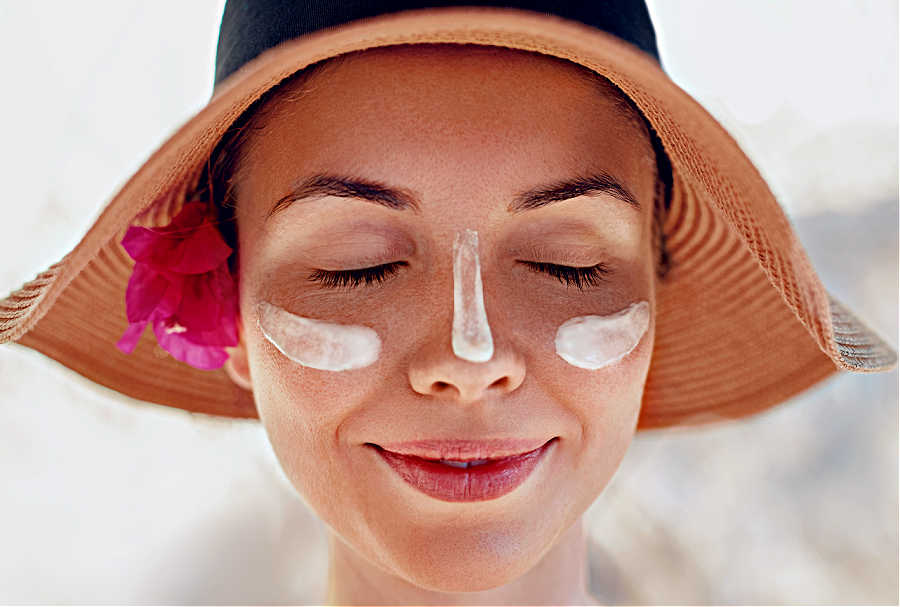
Both types protect your skin—but they do it in different ways.
Mineral sunscreen (also called physical):
- Reflects UV rays (sits on top of skin)
- Works immediately
- Less likely to cause irritation
- Great for sensitive skin
- Better for layering over serums or moisturizer
- May leave a white cast
- Feels thicker than chemical
Ingredients to look for: Zinc oxide, titanium dioxide
Chemical sunscreen:
- Absorbs UV rays and converts them into heat
- Lightweight and easy to blend
- No white cast
- Needs 15–20 mins to activate
- Can irritate sensitive skin
- Some ingredients break down quickly in sunlight
Ingredients to look for: Avobenzone, octinoxate, oxybenzone
Not sure which to use?
- If you have sensitive skin or use lots of skincare layers → go with mineral
- If you want a light feel under makeup → try a chemical formula with a high SPF or PA rating
Eco note: Chemical sunscreens with oxybenzone and octinoxate can damage coral reefs and marine life. Mineral sunscreens (zinc or titanium-based) are reef-safe and safer for aquatic ecosystems.
How much sunscreen should you apply to your face?
Most people apply too little sunscreen—so they’re not getting the protection listed on the label. To be sure, use the two-finger rule:
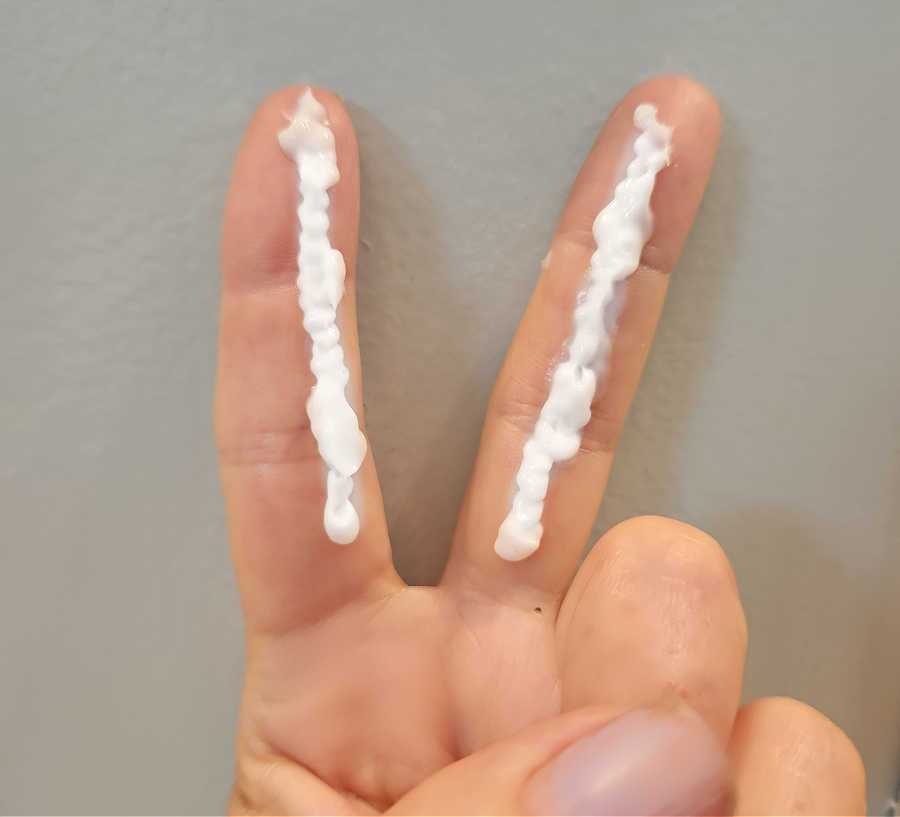
- Squeeze a line of sunscreen down your index and middle fingers
- Dot it onto forehead, cheeks, nose, and chin
- Blend it evenly across your face, neck, ears, chest and hands
Do you need sunscreen indoors or on cloudy days?

Yes—because UVA rays are sneaky. They’re not blocked by clouds or glass, and they penetrate deep into the skin—even when you’re inside.
UVA exposure happens when:
- You’re sitting by a sunny window
- You’re driving in a car
- It’s overcast or cloudy (up to 80% of rays still reach your skin)
Study-backed fact: Research shows people who sit near windows for long periods are more likely to develop sun damage—especially on the side of the face and hands closest to the window.
Protection tips if you’re indoors a lot:
- Apply broad-spectrum SPF 30+ daily—even if you’re staying in
- Consider a UV-filtering window film for home or car
- Add a light mineral sunscreen layer under makeup (easy to reapply)
Reminder: UVB causes sunburn, but UVA causes wrinkles, sagging, and age spots. That’s why daily sunscreen is key—even when you're not outside.
How to layer sunscreen with moisturizer & makeup
Wondering which goes first—sunscreen or moisturizer—and how makeup fits in?
The answer depends on what type of sunscreen you’re using (mineral or chemical), and it can make or break your SPF protection.
Quick tip: Mineral sunscreens go on after moisturizer. Chemical sunscreens go on before.
Get the full breakdown here: When to apply sunscreen before or after moisturizer
My go-to for anti-aging protection
Personally, I reach for mineral sunscreen. It layers easily over skincare, works immediately, and can be re-applied throughout the day—even over makeup.
It also tends to play nicer with sensitive skin and doesn’t break down as fast in the sun.
If you want the strongest protection from UVA aging rays, look for PA+++ or PA++++ rating on the label (in addition to SPF 30 or higher).
Take Away: Sunscreen and skin aging
No matter which type of sunscreen you choose, the most important thing is using it consistently—and correctly.
- Apply enough (think two-finger lengths for your face)
- Reapply during the day if you’re sweating or outside
- Layer it the right way (mineral on top, chemical on clean skin)
Bonus: Today’s sunscreens are better than ever—with improved UVA protection, longer-lasting formulas, and even mineral-chemical hybrids that feel great on skin.
Want to go the extra mile? Pair your SPF with UPF clothing, wide-brim hats, and a little shade when you can.
Because nothing fights wrinkles, dark spots, and sagging quite like good sun protection. Already seeing sunspots? Here’s how to fade them at home—even if they’ve been around a while.
Sunscreens with PA Ratings
Colorescience - Mineral block has a 4-star PA rating: Brush on mineral powder or Face Shield Glow Cream
Supergoop - Chemical block has a 4-star PA rating: Everyday Play SPF 50 Lotion
Derma B - Mineral block has a 4-star PA rating: Derma B Everyday Sunblock Lightweight Moisturizer
FAQs: Sunscreen for aging and wrinkles
Question: Does sunscreen actually reverse wrinkles?
Question: Does sunscreen actually reverse wrinkles?
Answer: No—it doesn’t reverse wrinkles, but it can prevent them from getting worse. Some studies show it may even improve skin texture slightly over time.
Question: What’s the best SPF for aging skin?
Question: What’s the best SPF for aging skin?
Answer: Go for SPF 30 or higher. SPF 50 is a great choice if you’re outside a lot or prone to hyperpigmentation.
Question: Is mineral sunscreen better for mature skin?
Question: Is mineral sunscreen better for mature skin?
Answer: Yes—especially if your skin is sensitive, or you use layered skincare. It works instantly and is less likely to cause irritation.
1. The Sunscreen You Use Matters More Than You Think - Natures Helper Medical Clinic
Want more glow-smart skincare tips like this?
Join my newsletter and get pro-backed beauty advice, anti-aging tricks, and real-life product picks—sent straight to your inbox.
Want More?
I share quick routines, beauty tweaks, and what’s working for me — straight to your inbox. Join the Club and get this free Cheek Shaper Video.
About the Author:
Linda Robison is a Facial Fitness Specialist and the founder of Anti-Aging Beauty Zone. With decades of hands-on experience, she shares practical, natural ways to lift and brighten mature skin—without expensive or invasive treatments.
Before you go ....
Please tap on the💙in the bottom right corner if you found this page helpful.
FOLLOW ME FOR MORE TIPS:
SHARE OR SAVE FOR LATER:

